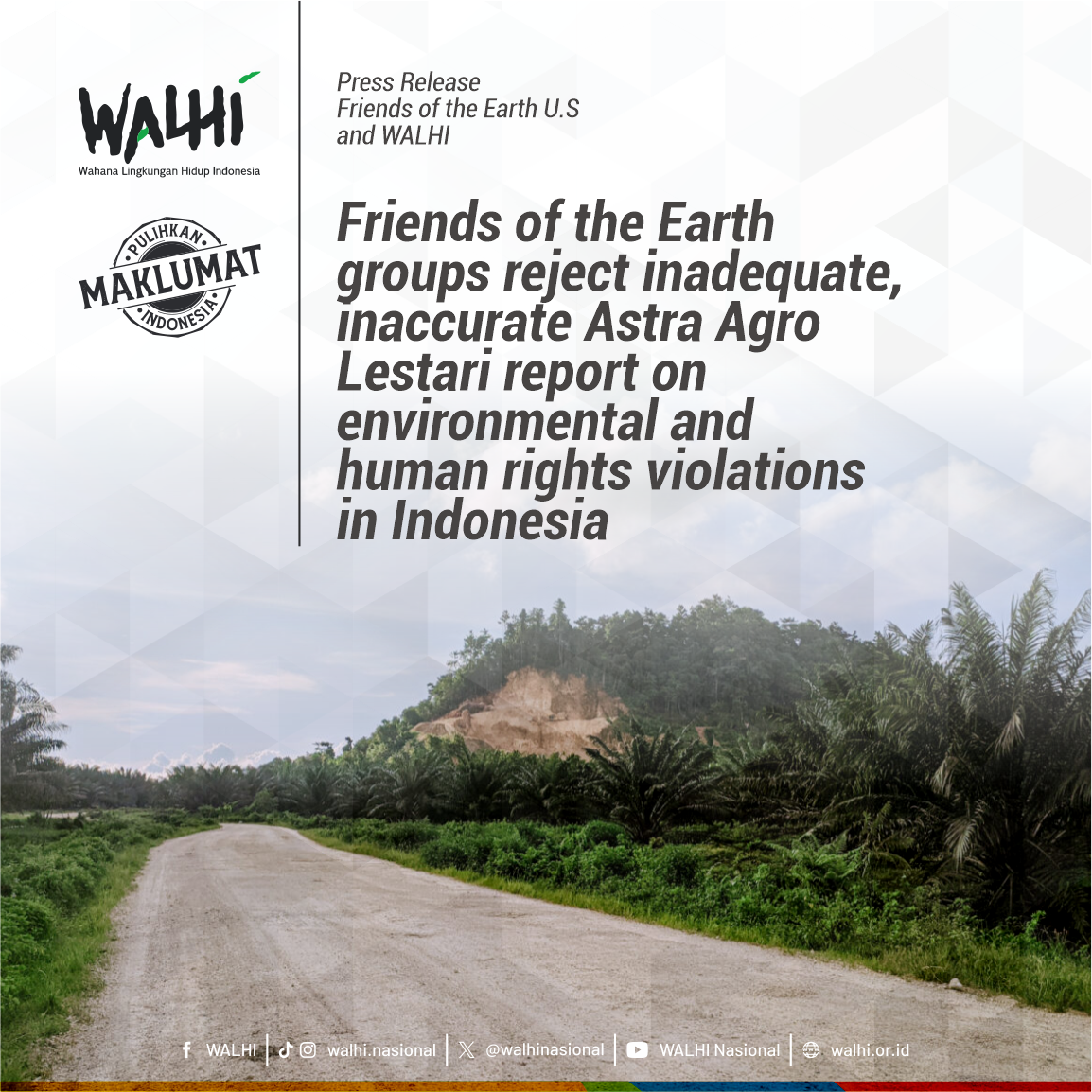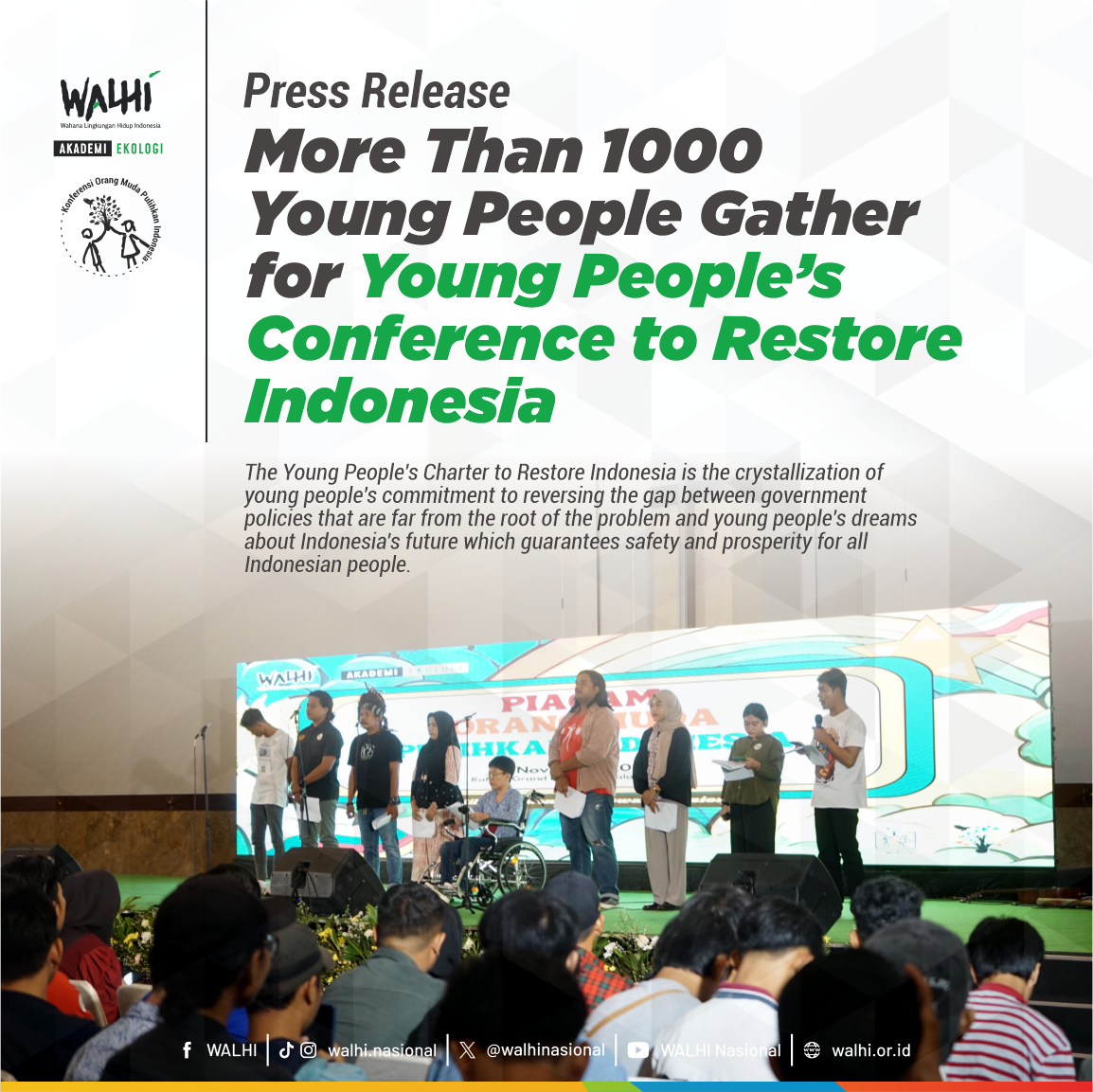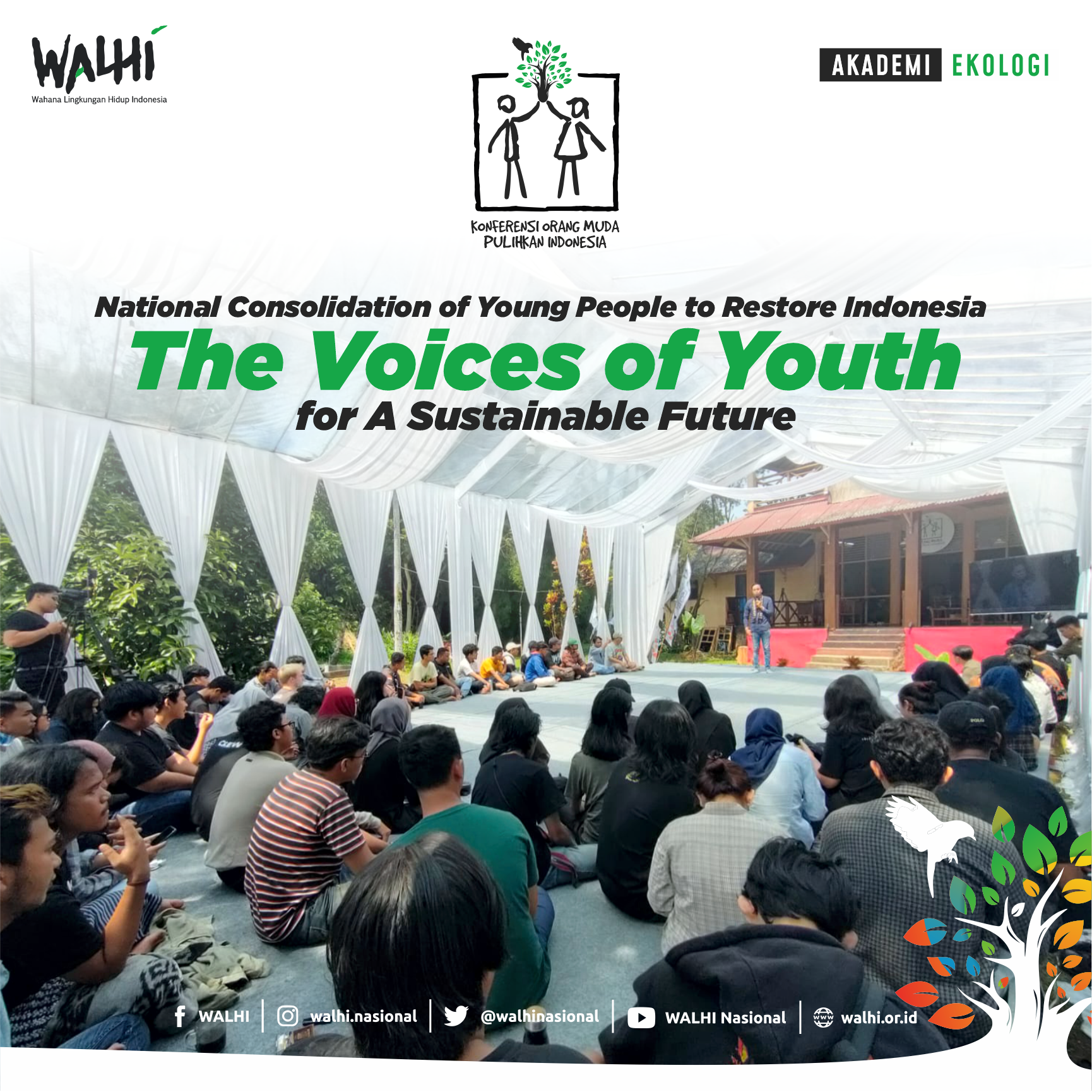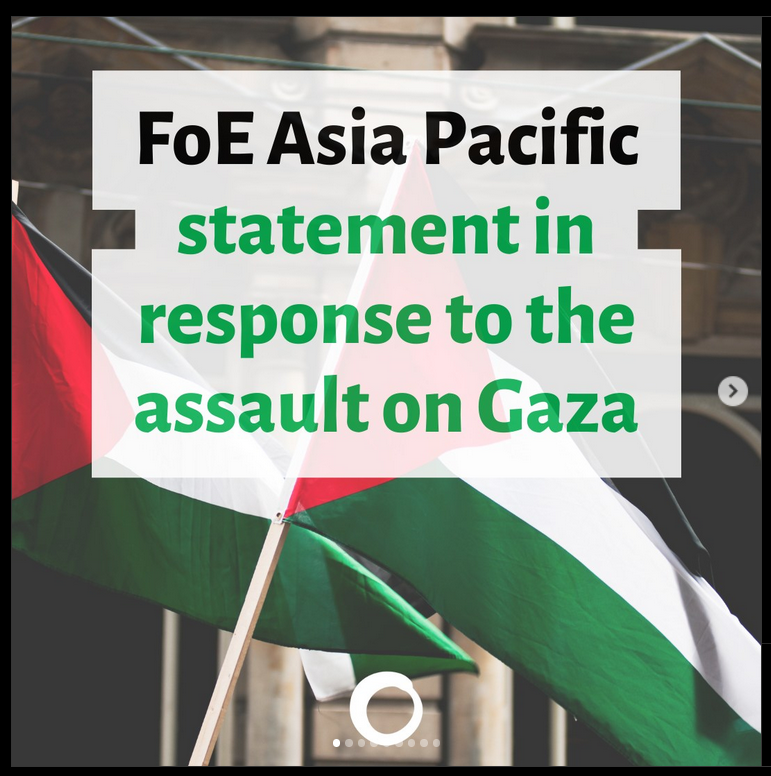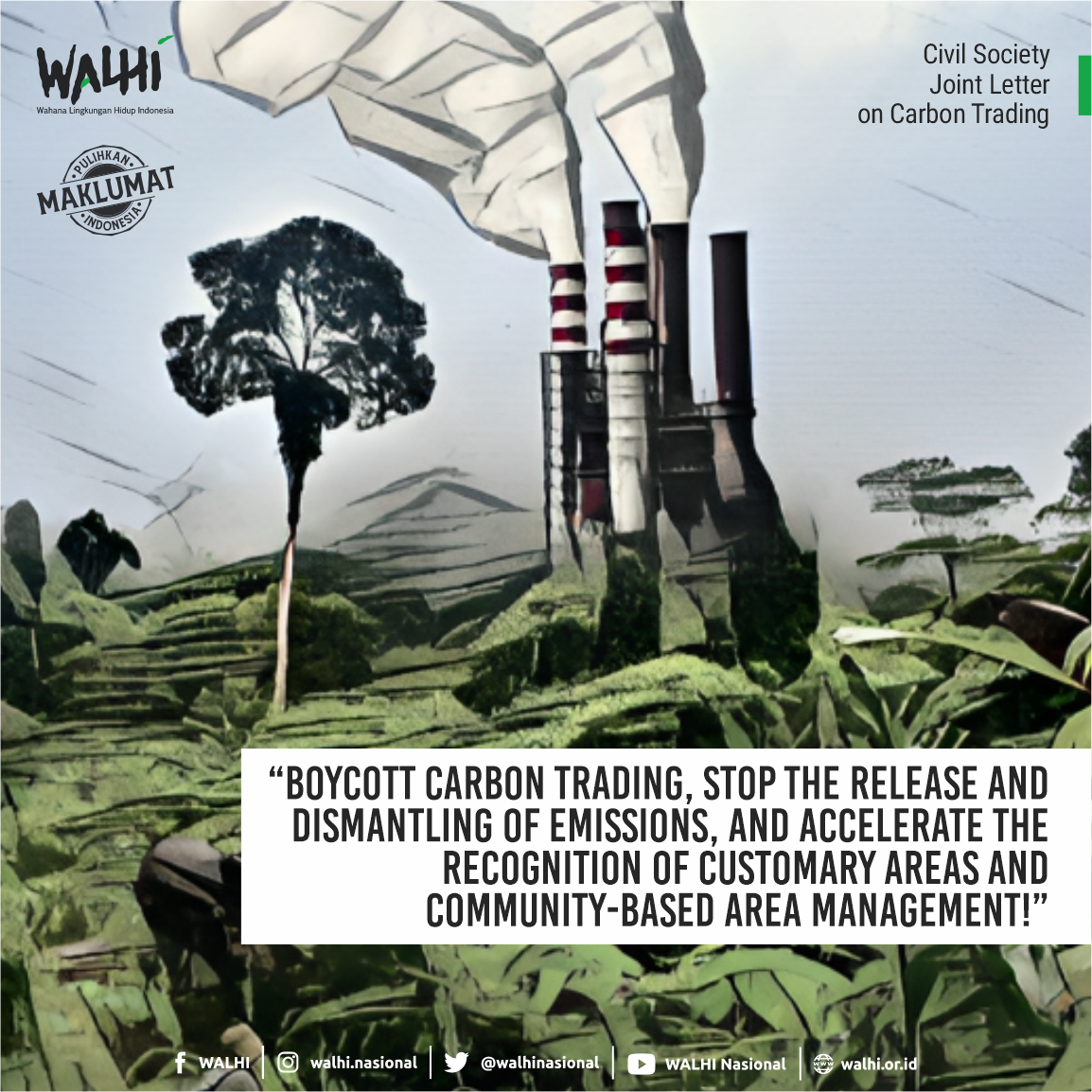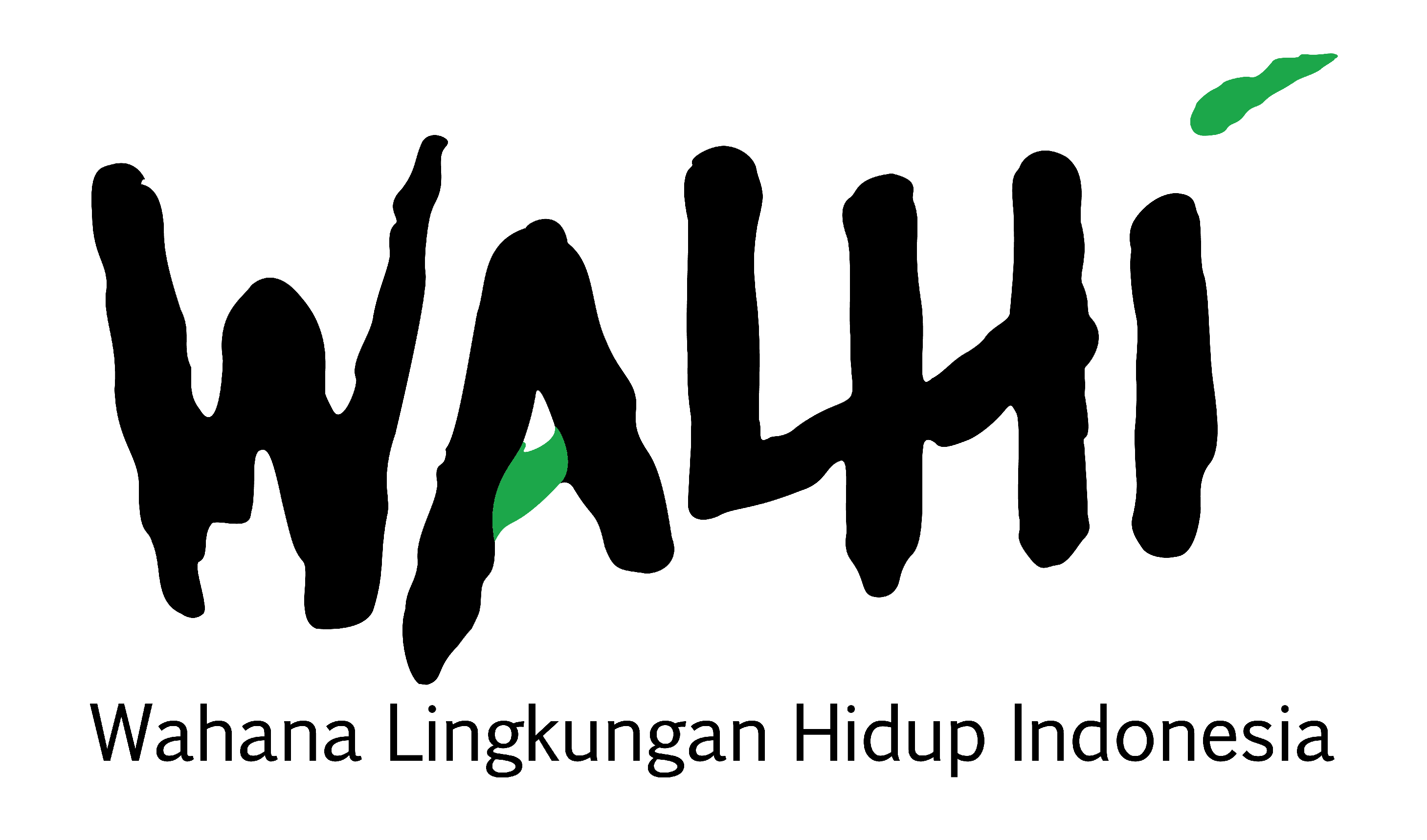Joint Press Release Friends of the Earth Indonesia (WALHI) and Indonesia for Global Justice (IGJ) Responding to Third Indonesia-EU CEPA Negosiations in Brussels 11-15 September 2017 JAKARTA, September 14, 2017 .The third round of negotiations on the Indonesia-EU Comprehensive Economic Patnership Agreement (CEPA) is under way in Brussels currently starting from September 11-15, 2017. One of the issues that later became the focus of both parties was related to the emergence of the European Parliament resolution on Palm Oil. Indonesia for Global Justice (IGJ) and the Indonesian Forum for the Environment (WALHI) urged the Government of Indonesia and the European Union not to raise the issue of palm oil as a means of trade-off in the EPA-Indonesia CEPA negotiations. WALHI Climate Justice Campaign Manager , Yuyun Harmono, stated that the issue of oil should be removed from the negotiation. The issue of oil palm should be placed in a context of a more human-focused issue especially related to environmental protection and human rights in the value chain of palm oil plantations from upstream to downstream in Indonesia. "The issue of environment and human rights; land grabbing, environmental degradation, violence and modern slavery in palm oil plantations controlled by multinational corporations already existed before Indonesia-EU CEPA negotiated. The palm oil problem will not be resolved through trade between Indonesia and EU under CEPA, the trade and investment agreement will further exacerbate the degradation of environmental and social condition of society ", Yuyun concluded. Meanwhile from Brussels, Belgium, the Executive Director of IGJ, Rachmi Hertanti, stated that in this third EPA Indonesia-EU negotiation the nuance is very strong with the issue of palm oil debate.
Especially in Indonesia-EU CEPA will set up a special chapter on Trade and Sustainable Development (TSD) which will include some aspects of protection of workers and the environment. "The issue of palm oil will be the main focus in the chapter on Trade and Sustainable Development (TSD) in the framework of environmental protection. One of them is by approaching product standards and certification schemes. However, this approach has the potential to reduce the targets of conflict resolution that arise in the investment practices in oil palm plantations, "explained Rachmi. In line with Rachmi, Yuyun stated that the standardization and certification mechanism in the CEPA is not the right solution to resolve conflicts and inequality of land tenure in palm oil plantations. "The implementation of RSPO or ISPO is just a false solution in the Palm Sector because it does not change the structure of land tenure that is still dominated by the corporation. The government should formulate an economic justice road map of palm oil governance for smallholders and reduce land controlled by corporations through accelerated agrarian reform programs, "explained Yuyun. IGJ and WALHI therefore urge the Government of Indonesia and the European Union to: (1) not bring the issue of palm oil to the table of trade and investment negotiations between Indonesia and the European Union or otherwise known as Indonesia-EU CEPA; (2) to formulate an economic justice-based roadmap of palm oil governance for smallholders and farmers other than partnership schemes that remain profitable to the corporation and prove to be failing in the welfare of farmers; and (3) to immediately prepare the tools of Environmental and Human Right Impact Assessment on international trade and investment cooperation model which have the potential to cause adverse impact on the people.**** Contact: WALHI Climate Justice Campaign Manager: Yuyun Harmono (081385072648) harmono@wp_walhi.local Executive Director of IGJ: Rachmi Hertanti (081749851800) [email protected]

